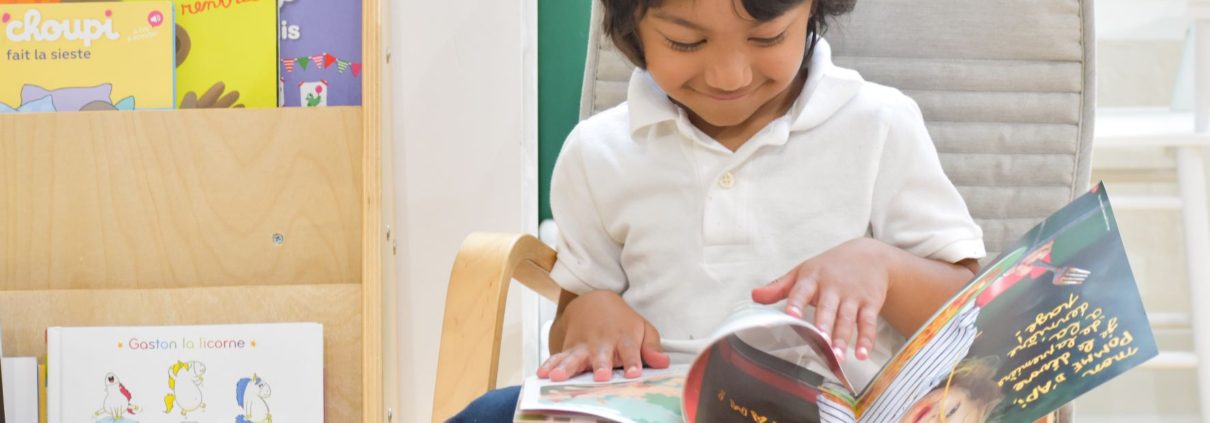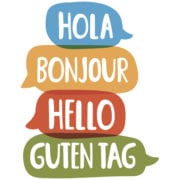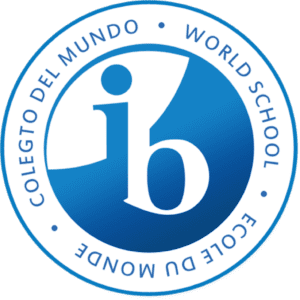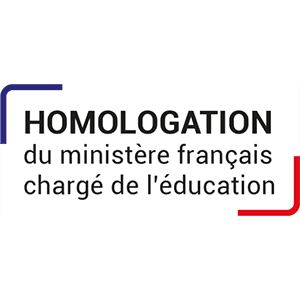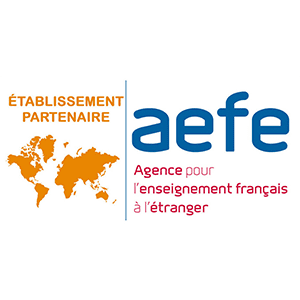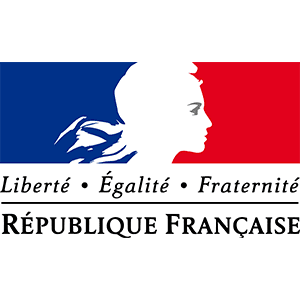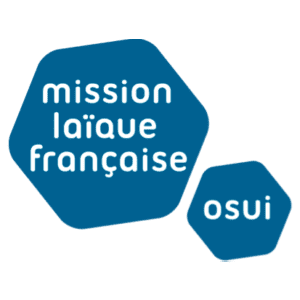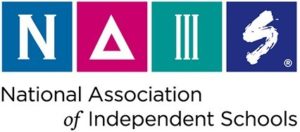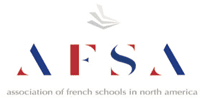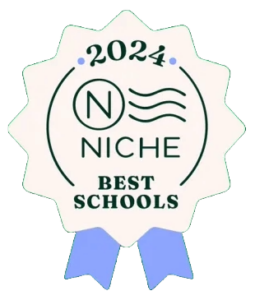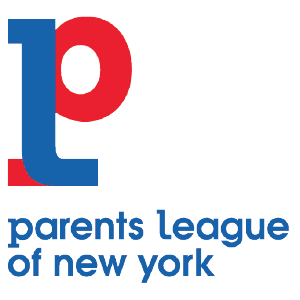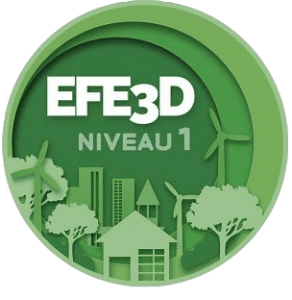How Bilingual Children Learn to Read
It is a common misconception that bilingual students might lag behind their monolingual peers in reading proficiency. In fact, decades of research have proved that bilingual students may become advanced readers and show advantages over their peers in a single-language learning environment. With encouragement and practice, bilingual children are able to achieve full biliteracy!
How Bilingualism Puts Readers at An Advantage
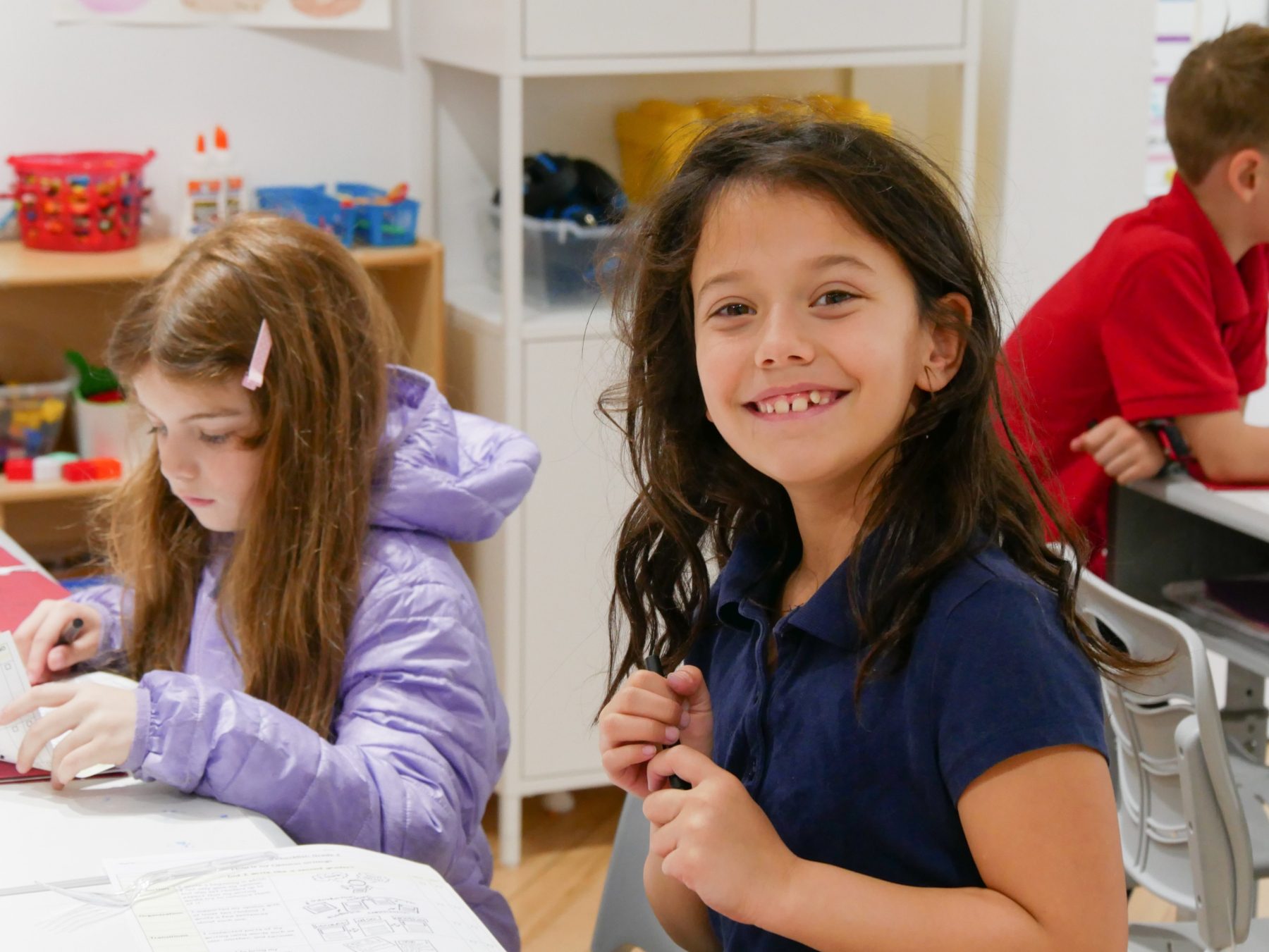
Bilingual education enables students to develop key components of successful reading.
Metalinguistic Awareness Development
Research has shown that bilingual children possess more elaborate reading strategies than monolingual children, presumably due to higher metalinguistic skills.
Metalinguistic awareness refers to the ability to reflect upon and manipulate the structure of language. It is a set of skills that are related to multiple linguistic elements, including phonological, morphological, syntactic, and lexical awareness. To some extent, bilingual children can transfer these skills involved in learning one language to another, consequently accelerating their language learning.
Literacy Acquisition
As bilingual children develop their metalinguistic skills and language proficiency, they can gain further advantages in literacy acquisition. Exposure to multiple languages from a young age enables them to better understand the word structure and build a broader vocabulary range. These foundational capabilities could explain the finding that bilinguals tend to spell more complex vocabulary words in later grades.
“Students in dual-language immersion programs perform as well as, or better than, their peers in core academic content areas by late elementary school. […] By the end of middle school, students in dual-language programs were performing one grade level higher on reading assessments than their peers who were not enrolled in these programs.”
– Researchers from American University, 2016
Cognitive Development
Bilingualism fosters cognitive development, providing students with a robust cognitive reserve. Bilingual individuals typically exhibit stronger working memories and attention spans, contributing to academic and behavioral enhancements. Moreover, their ability to switch between languages cultivates flexible thinking and problem-solving skills. By navigating between different linguistic systems, bilingual students become adept at critically evaluating and resolving complex tasks.
How to Help Bilingual Students Gain Reading Fluency
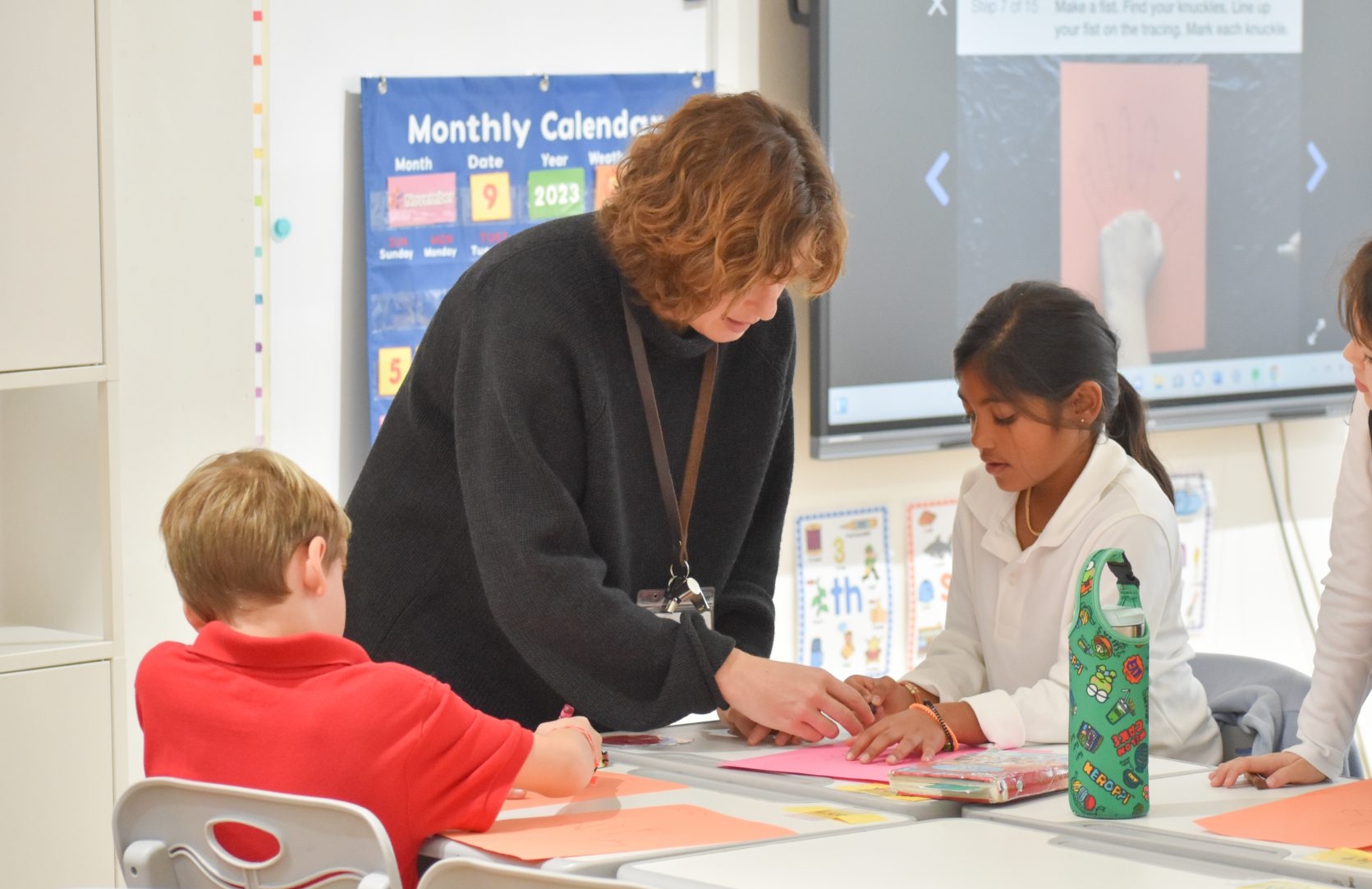
With sufficient support, students can boost their reading abilities in both languages.
Even though bilingual education can provide students with many unique strengths, without proper instruction, their literacy in one language may become stunted. Here is a list of possible methods that adults can use to promote their students’ reading skills:
- Recognize differences between the languages that may confuse emergent bilingual students. For example, extra support may be necessary for English-speaking students learning the Chinese writing system.
- Select strategically between the simultaneous and sequential dual-language programs for students. For instance, the Immersion Progression Model at Tessa International School facilitates a smooth transition from full immersion to balanced bilingual education, ensuring optimal language development.
- Assign reading tasks in both languages to reinforce literacy skills across all languages in a student’s repertoire.
- Encourage students to read aloud to each other, providing opportunities for collaboration and confidence-building.
- Engage families in students’ bilingual language development by providing take-home library books and other resources to strengthen language skills outside the classroom.
Fostering positive attitudes toward bilingualism, biliteracy, and biculturalism is essential for creating optimal learning environments. While the journey may differ from traditional monolingual learning, bilingual education offers unique advantages that empower bilingual children to excel in reading and language skills for a lifetime.
Are you ready to explore the only international leading private school in Hoboken?
Contact Tessa International School to learn more!


